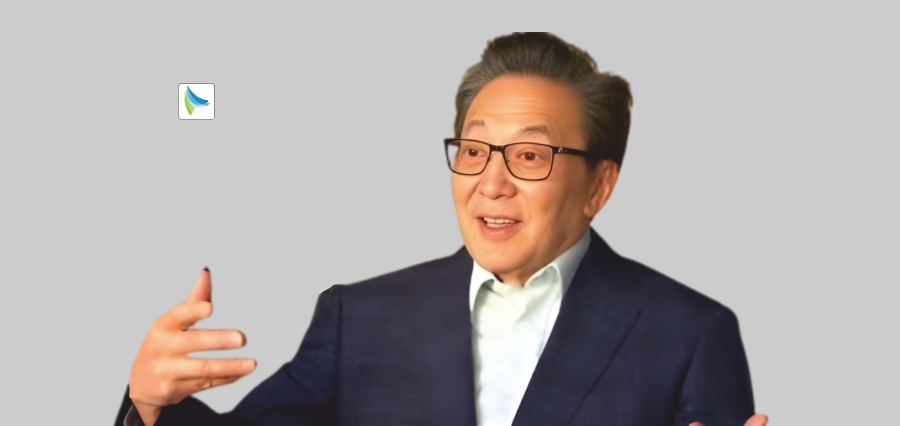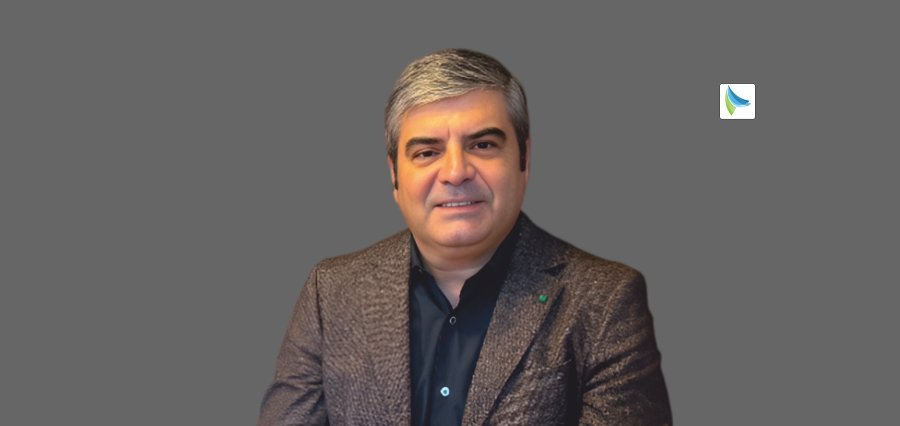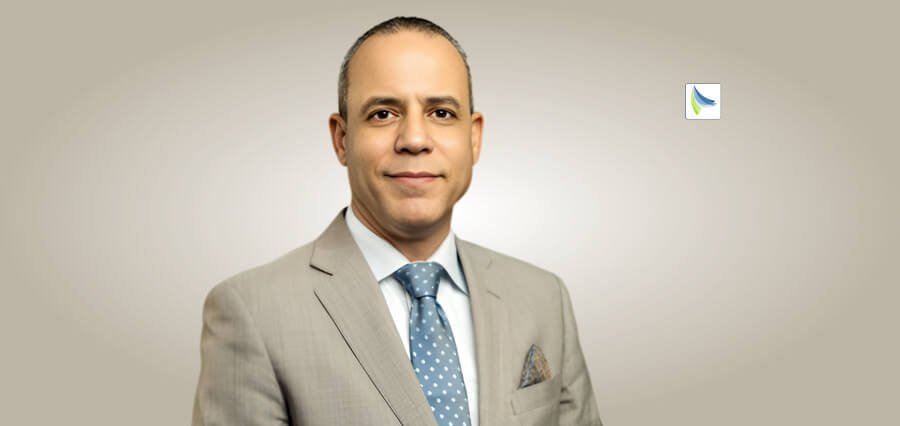The question is not whether to embrace AI or not to embrace AI. The question is not even how soon a company must adopt it. The real question is how they, as an organizational culture, can really adapt to it.
To answer this most crucial question, we need a charismatic entrepreneurial mind bearer who has seen it all and solved tech problems all their professional life.
Welcome, Rick Inatome. He has spent decades at the crossroads of disruption—from the personal computing revolution alongside Steve Jobs and Bill Gates to today’s AI transformation. But ask him about leadership, and he won’t start with strategy or technology. He’ll start with something more fundamental: the willingness to change yourself first.
As Chairman of Léman Manhattan Preparatory School and Founder of Collegio Partners, Inatome helps institutions prepare for the AI era not by installing new tools, but by transforming the cultures that will use them. His philosophy is simple. Technology opens doors, but people with adaptive, values-driven cultures can walk through them more easily.
Humility-Based Leadership Is Key
Obviously, the first question that comes to mind when Inatome is in front of you is how he has led through multiple waves of disruption, including personal computing, the internet, and now AI. And how has his perspective on leadership evolved over that time?
When we asked those questions, Inatome’s eyes wandered back in the past. The answer came instantly. “Learning from great leaders has taught me that humility-based leadership trumps everything else that drives productivity and progress. This is especially so as we become more dependent upon AI, because it lacks the human aspect of leadership. It is incapable grasping the nuance of emotion, and we must find ways to maintain human connectivity.”
In tech, Inatome learned from others to see futures many couldn’t yet imagine. In business, he learned to make those visions real. “But education? That changed me and today, with AI, I see it as the primary means by which we can reverse some of the troubling impacts of modern technology upon younger generations. The one teacher to 30 students model of education today has not changed much since when I was in school. But educators increasingly must struggle with young minds that, in addition to the explosion of autism, dyslexia, and ADHD, have been wired by technology-fed dopamine loops. AI provides technology that can facilitate the individualized breakthroughs educators need in this challenging environment.
Constantly Changing Currents
And he is right, as AI is reshaping everything, everywhere, all at once, conventional boundaries get erased in the blink of an eye. Next, when asked what makes Collegio Partners different from traditional consultancies, Inatome says that many leading consulting firms are at risk of becoming obsolete in the era of AI. “We are in the uncharted waters of transformative times.”
“And we start with a simple truth.” Technology without cultural transformation is a waste of opportunity. Inatome adds that before he and his team talk about implementing transformative new tools, they must focus on whether leaders are ready to transform themselves first. Because an institution’s readiness mirrors its leaders’ readiness.
They also bring the resources to finance real change, not just workshops and reports, but the sustained work of shifting mindsets and processes. “Our goal isn’t to help organizations ‘use’ AI, but to help them redefine what success looks like in an AI world.”
Being the Change
Inatome often says that personal transformation comes before organizational transformation. In practice, he means by it that change is deeply personal before it’s organizational. Too many leaders treat transformation as something that happens ‘out there’ to ‘somebody else.’ “They forget that the real battleground is between our ears.”
Inatome learned this important lesson from his father. “My father was born an American citizen, but during WWII, his family lost everything in the internment camps. At an age when bitterness would have been justified, he enlisted in the U.S. Army to prove his loyalty to the country that had wronged him. When we moved to Detroit and a real estate agent returned his check, tears in his eyes because neighbors wouldn’t let a Japanese family move in, he still chose dignity over resentment,” he shares.
Becoming Human, AgAIn!
In the AI era, the importance of conventional technical skills keeps shrinking. The most important trait to lead AI initiatives is human. What endures is the capacity to learn, unlearn, and relearn, and to model this habit for your teams. If a leader hasn’t embraced that discipline personally, their resistance will spread throughout the organization, claims Inatome.
At Léman Manhattan, he champions the ‘favorite teacher model.’ Explaining it, Inatome recalls that on his first day of fifth grade, his teacher walked into class — a tall, distinctive man who wrote “Mr. Smigel” on the chalkboard. Then he turned around and said, “My real name is Smigelski, but my father changed it because he grew tired of enduring all the dumb Polack jokes.”
His words struck Inatome like lightning. He reveals, “We were the only Japanese family in that school, and my father had changed the pronunciation of our name to sound less ‘Japanese. Mr. Smigel seemed to understand the shame of my story without me having to tell it. Throughout that year, he brought out something in me I couldn’t see in myself. He became my favorite teacher not because of what he taught from textbooks, but because he made me feel capable of more.”
That’s what they honor at Léman, learning happens best through deep human connection, insists Inatome. Students remember the teacher who believes in them first, not the technology they use or the grades they can attain. AI has the power to reduce the teacher’s time on the mundane so they can devote time and attention to enhancing those relationships. He further explains, “We’re preparing students for a world where AI will be pervasive, but we’re going to lead by strengthening its tie to humanity.”
Mindset Must Shift
Moreover, Inatome shares the biggest mistake leaders make when integrating AI into their organizations. Treating AI like either an enemy or, even worse, a plug-and-play upgrade, instead of seeing a catalyst for rethinking how people learn to lead technology to touch people rather than be led by it.
“I’ve watched leaders buy AI tools, run some training, and check the box.” But they skip the deeper work, which is leading AI to help in building trust, creating transparency, and establishing shared purpose. If people fear that AI threatens their jobs, they’ll resist it. If they see it as a partner in solving problems by creating bonds with others and creating value, they’ll embrace it.
That mindset shift starts at the top and gets reinforced daily through culture. It’s not about the technology. It’s about the ability to harness technology as a tool to inspire and enable individuals to actualize their full potential, emphasizes Inatome.
Survival of the Most Transformational
When asked about looking ahead, what patterns does he see in how people respond to major disruption, Inatome says that first comes denial. Many people underestimate both the scope and speed of change. Then, defensive adaptation, minimally adapting with tweaks, hoping the comfortable model survives. Some resort to sabotage in hopes of preserving the status quo. Only a minority jump to proactive reinvention early, and those are the ones who gain the most.
Inatome saw this phenomenon with personal computers when mainframe companies called them toys. He saw it in the dot-com era when businesses thought a basic website meant ‘going digital.’ Now he sees it with AI. Many leaders think adopting a few tools is enough, without rethinking the workflows, decisions, and culture that determine how those tools actually get used.
“Transformation rewards the curious, the courageous, and the disciplined. The rest may survive, but possibly not!”
Anchored Deep in Values
When he stated this, we saw the vastness of his professional journey. When asked about the values that anchored his decisions throughout such a varied career, Inatome notes the US Army coined an acronym – VUCA (volatility, unpredictability, complexity, and ambiguity) — to define today’s world. The leadership antidote to these conditions begin with curiosity, integrity, and stewardship.
Courage to press himself to explore keeps him learning and open to perspectives beyond his own. A commitment to integrity ensures his decisions align with his values, even when shortcuts might be easier. Stewardship reminds him that leadership is temporary. “We hold responsibility not as a title but in trust for the people and institutions we serve.”
“My father taught me these lessons without saying much. His actions showed me that how you respond to injustice defines who you are. How you treat people when you have power reveals your character. How you prepare the next generation determines your legacy.”
Get the Culture Right
In his advice to leaders facing VUCA, Inatome says: Accept uncertainty as the norm. That should not be discouraging. It’s liberating. Build agility and adaptability into your DNA and your organization’s culture.
Invest in your own growth first. The more you build your emotional intelligence and expand your perspectives, the better you can inspire others to do the same.
Finally, focus on culture as your strategic advantage. Technology, capital, and even talent can be copied. But a culture that embraces change, encourages collaboration, and stays true to its vision, mission, and values? That’s incredibly hard to replicate.
If you get the culture right, almost everything else becomes possible.
Are You Ready to be Changed Forever…?
Rick Inatome’s career offers a rare perspective: seeing transformative change not as isolated waves, but as part of a continuous current. His message remains consistent whether he’s ushering in personal computing, guiding ventures, or helping schools navigate AI. Technology is the enabler, but culture is the driver.
For leaders everywhere, his lesson is both sobering and energizing. The tools will keep changing, but the need for self-awareness, adaptive leadership, and resilient culture never will.
Read Also: Most Charismatic Entrepreneurs to Know in the USA














